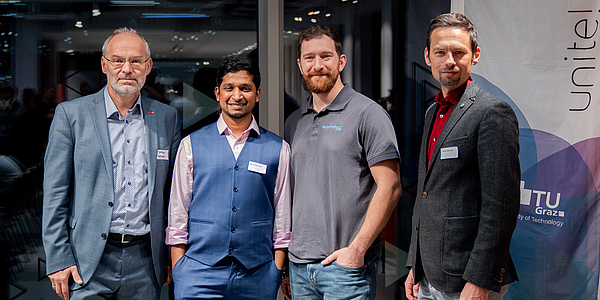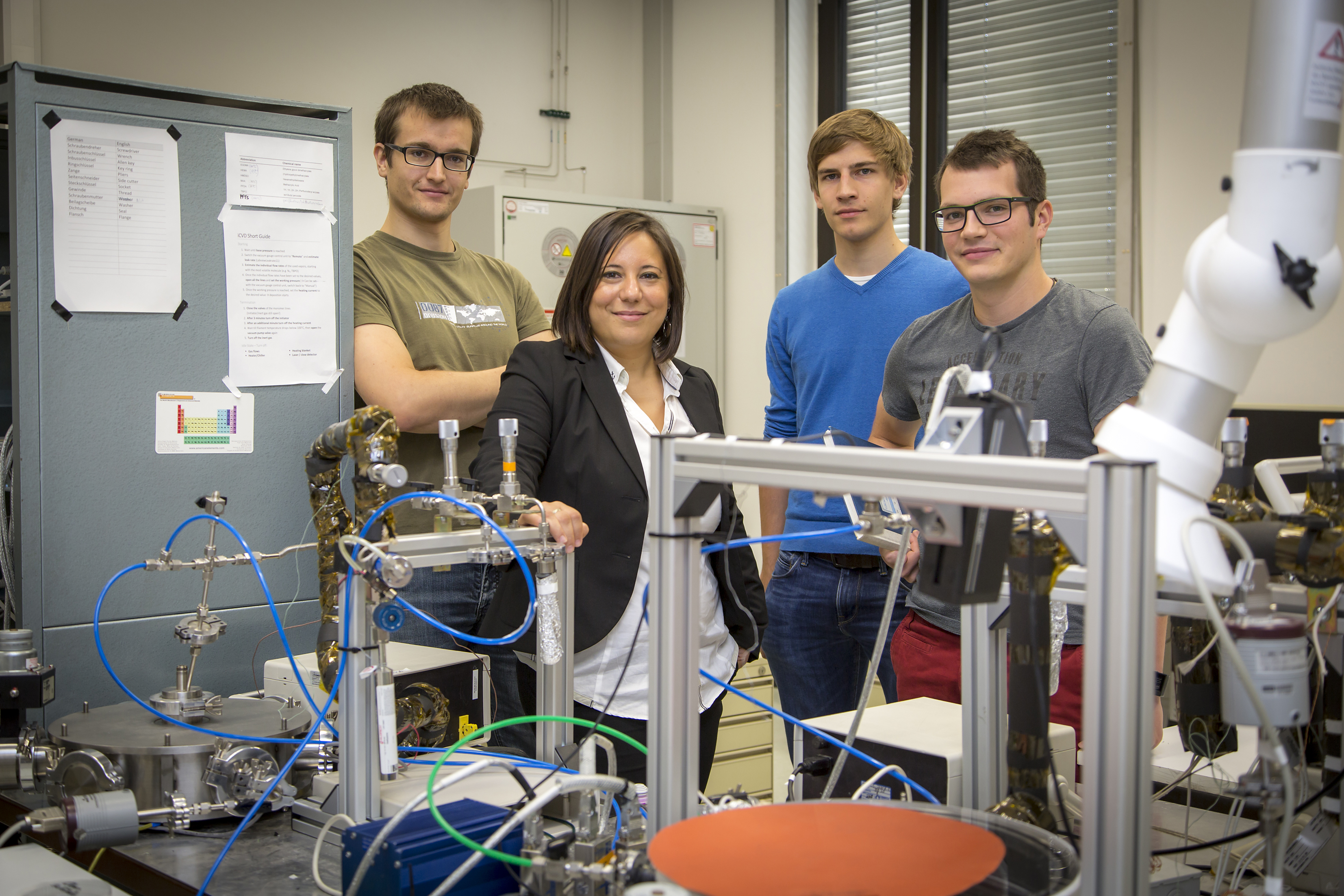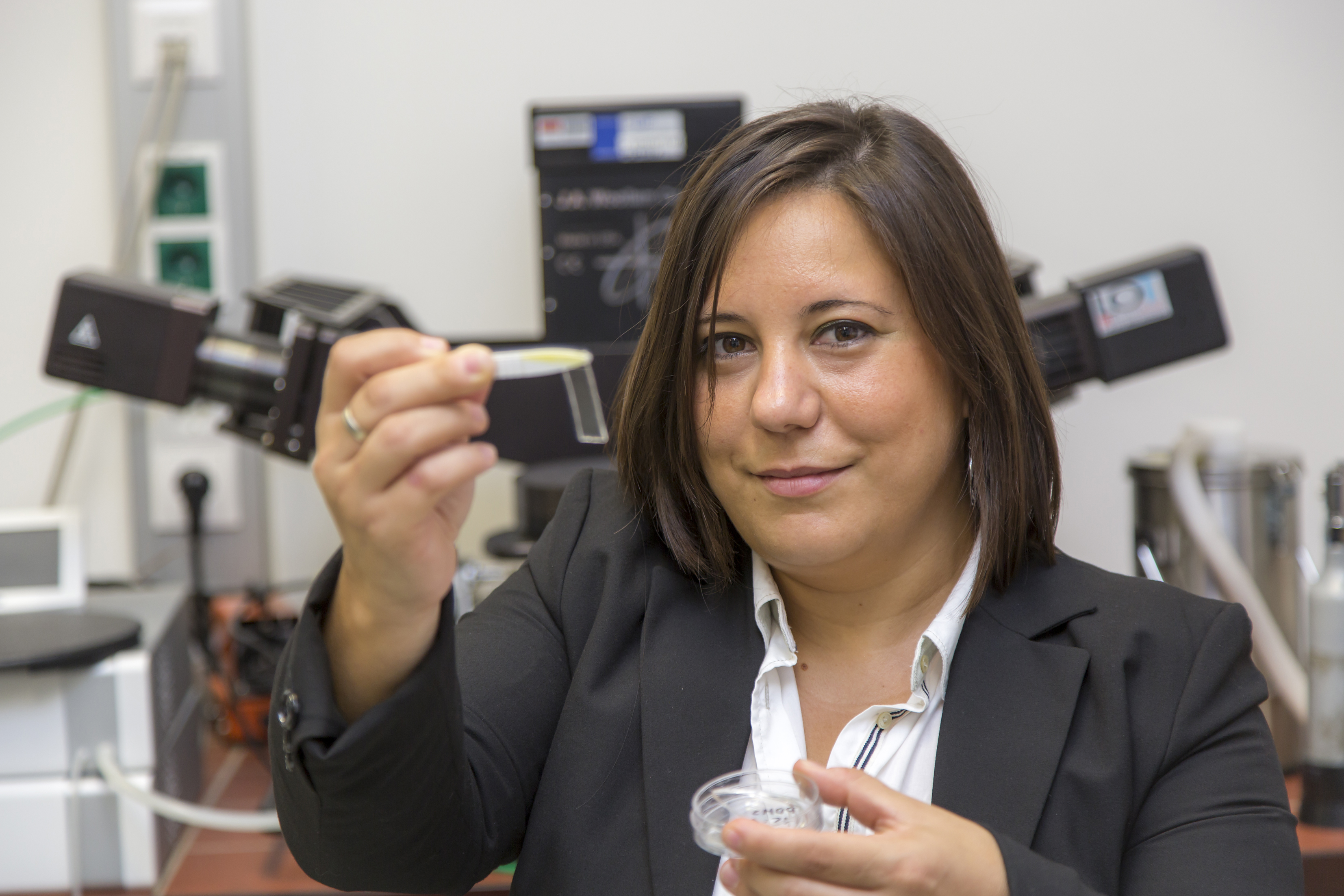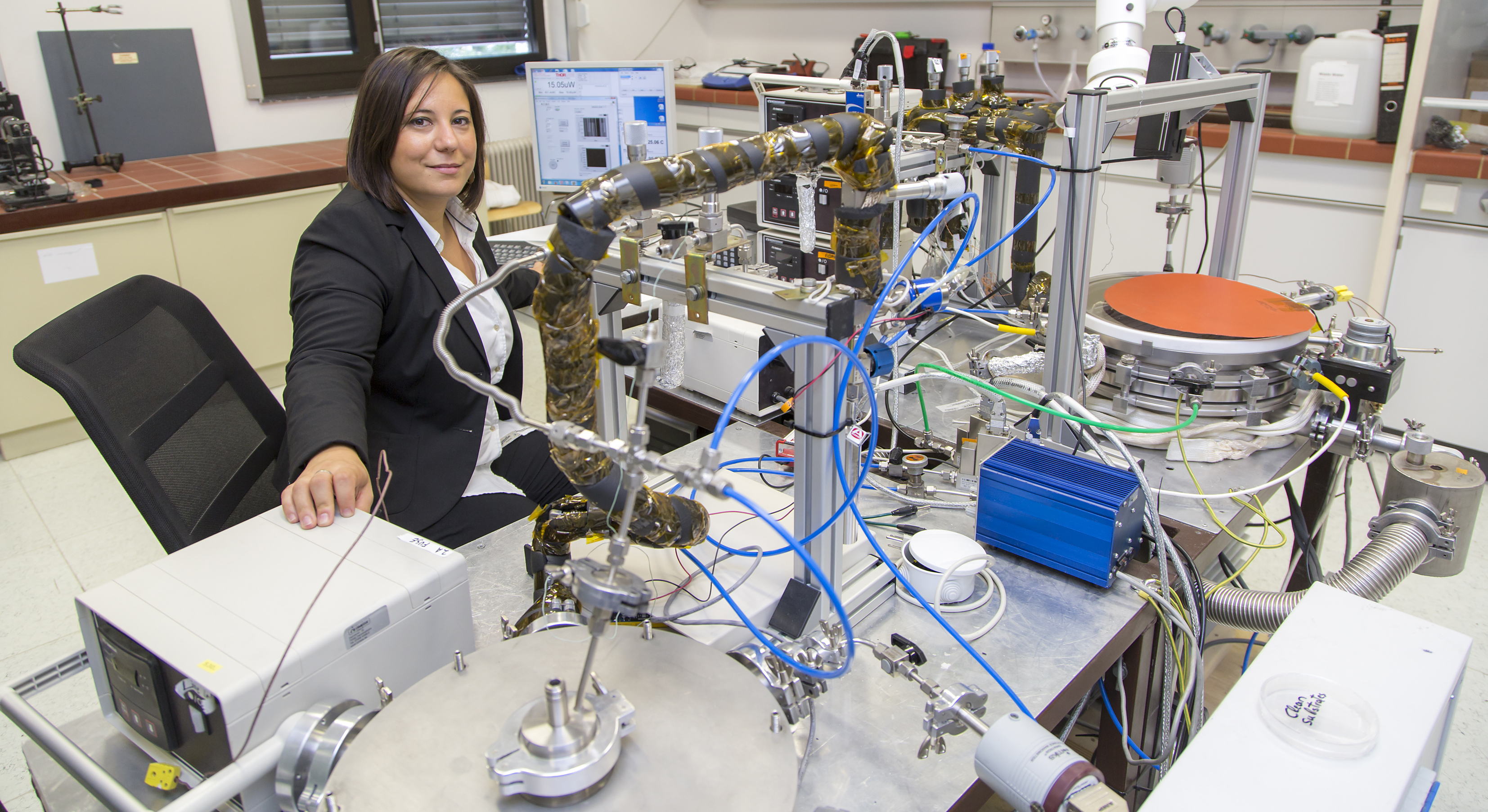Smart artificial skin: ERC grant for researcher at TU Graz
![[Translate to Englisch:] Anna Maria Coclite forscht im Bereich der Materialwissenschaften und ist die erste Frau mit einem ERC Grant an der TU Graz](https://www.tugraz.at/fileadmin/_processed_/2/4/csm_coclite_013_1_by_Lunghammer_TU_Graz_8bfb8abd6a.jpg)
More sensitive than fingertips
The aim of Anna Maria Coclite’s ERC-sponsored project “Smart Core” is to develop a hybrid material which can perceive temperature, humidity and pressure simultaneously and react accordingly. State-of-the-art materials currently include three different sensors for the perception and transmission of individual stimuli. The three-in-one hybrid material which Coclite and her team will work on simplifies the sensors of artificial skin and can increase sensory resolution 20-fold in comparison to human skin. This hugely increased sensory resolution of the novel hybrid material is achieved using a variety of nanorods on a surface. The “smart core” of these nanorods, hence the name of the project, consists of a polymer which responds to temperature and humidity by expanding. The change in thickness of the polymer exerts pressure on its shell, i.e. the nanorods, and these react sensitively to the pressure and in turn trigger stimuli. The hybrid material will achieve some 2,000 sensors per square millimetre, and thus spatial resolutions far below one millimetre, which corresponds to that of the human fingertip.Towards a novel hybrid material
Delighted with the award of the ERC grant, Coclite explains: “This grant will allow us to use a new method to develop a completely novel material, which reacts simultaneously to multiple stimuli and which can be used as an artificial skin for a wide range of applications. The success of ‘Smart Core’ will significantly influence disciplines such as biotechnology, biological sensors and tissue engineering.” To develop this hybrid material Coclite uses the initiated chemical vapor deposition method (iCVD), which was developed at the Massachusetts Institute of Technology. Coclite combines this with the atomic layer deposition method (ALD). The development of the iCVD method, which Coclite brought from the USA to TU Graz and which is in use only in four universities in Europe, enables the necessary material manipulations to be carried out on the nanoscale. Further research results from the “Smart Core” project will also include knowledge of the production of nanocomposite materials for a wide variety of applications, such as sensitive materials, formulation of drugs, membranes and sensors as well as alternative ways of controlling the chemical properties and molecular arrangement of polymers using the chemical vapor deposition method.Ass.Prof. Dr. Anna Maria Coclite
Anna Maria Coclite is an assistant professor at TU Graz’s Institute of Solid State Physics and heads the CVD (Chemical Vapor Deposition) lab of the Institute. Coclite studied chemistry at the University of Bari, her home city. After obtaining her doctorate in 2010, she worked as a post-doc at the Massachusetts Institute of Technology (MIT) in Boston before coming to TU Graz in 2013. Anna Maria Coclite received a Marie Curie Fellowship for the Three-S project in 2014 and in the same year she was awarded a research grant for the Pro-CVD project by the Austrian Science Fund. On top of this, she has also received seed funding from TU Graz for various submitted projects. Anna Maria Coclite’s research area is in materials science and especially in the CVD method (Chemical Vapor Deposition) for treating materials at the nanolevel, which she brought back to Europe from MIT and which she is continuing to develop at TU Graz. Anna Maria Coclite is not only the first researcher to receive an ERC Starting Grant at the Faculty of Mathematics, Physics and Geodesy, but she is the first woman at all to receive an ERC Starting Grant at TU Graz.This research area is attributed to the Field of Expertise "Advanced Materials Science“, one of TU Graz' five strategic areas of research.
Kontakt
Ass.Prof. Dr.
Institute of Solid State Physics
Petersgasse 16, 8010 Graz, AUSTRIA
Tel.: +43 316 873 8970
<link int-link-mail window for sending>anna.coclite@tugraz.at
<link http: www.if.tugraz.at _blank int-link-external external link in new>www.if.tugraz.at/web.php








